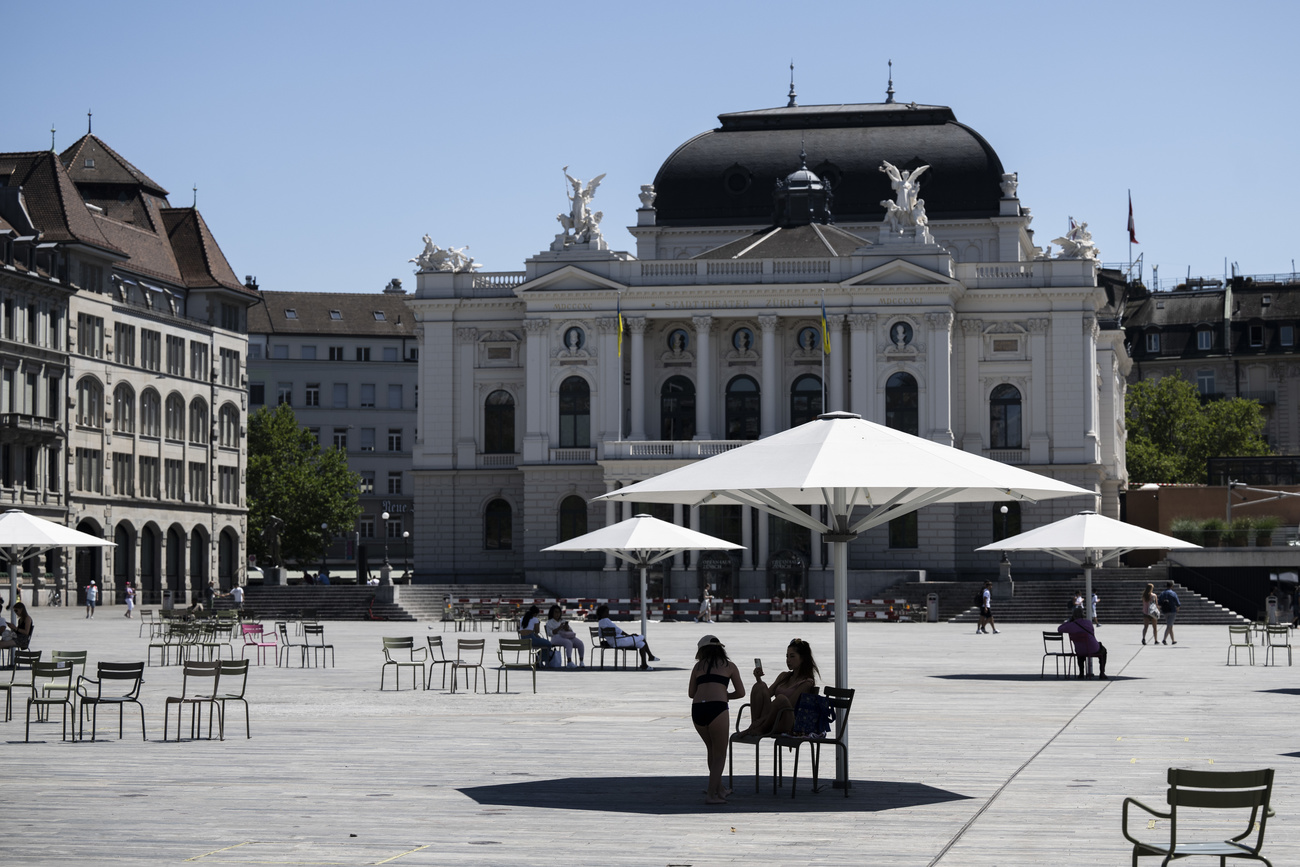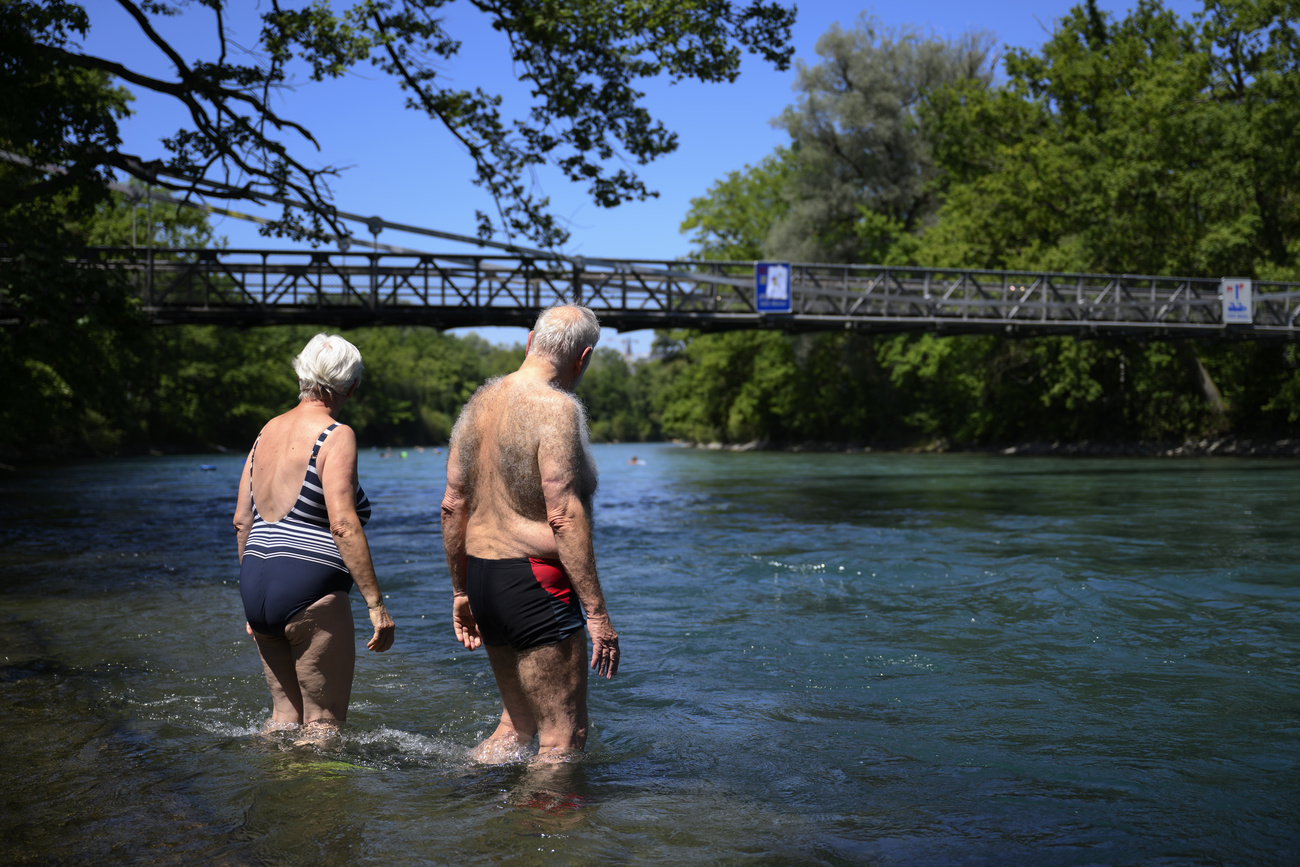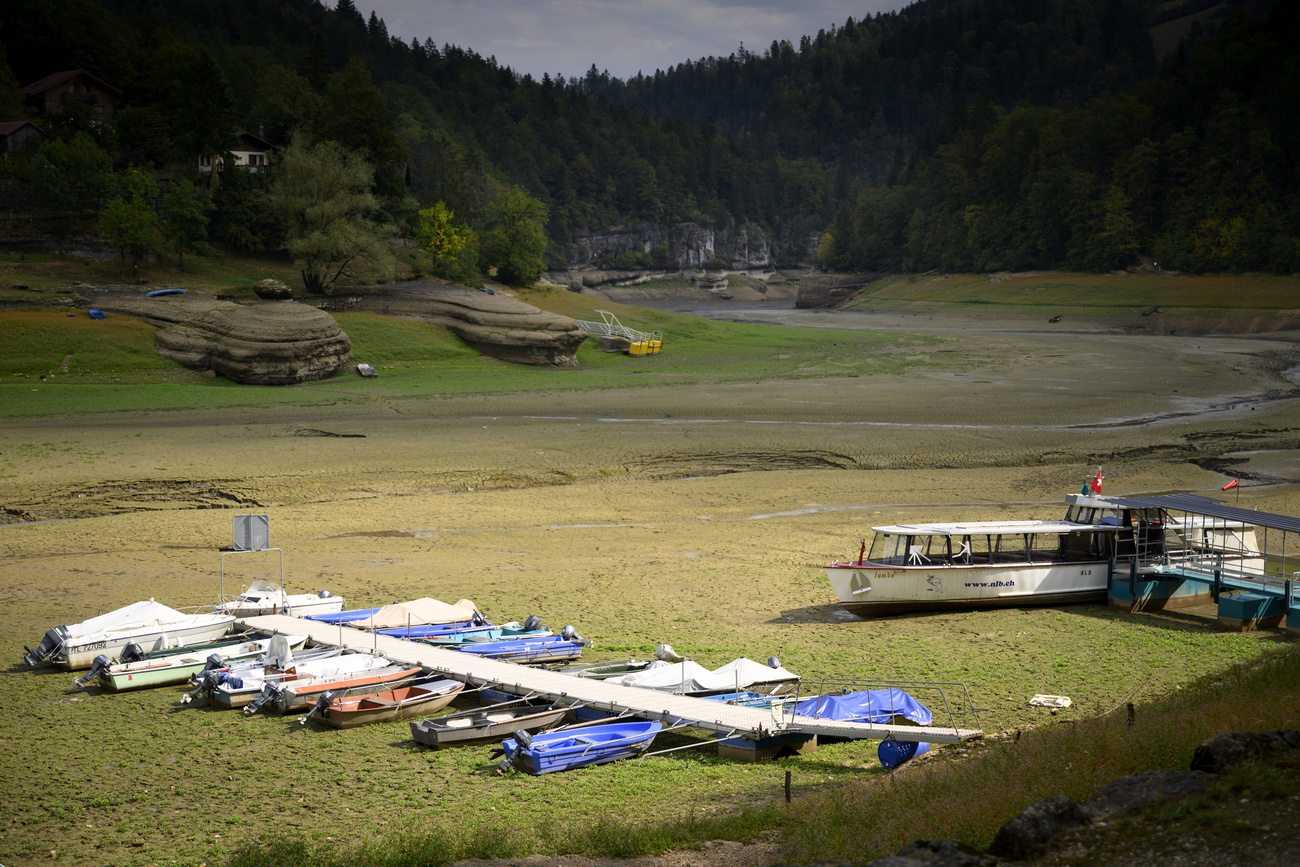
Global warming caused 60% of Swiss heat deaths in summer 2022

Human-made global warming was responsible for around 60% of Swiss heat deaths last summer. What’s more, there were also three times more heat-related deaths than the average from 2009 to 2017.
This is the conclusion of a study led by the University of Bern and published in the scientific journal Environmental Research Letters, the university said in a statementExternal link on Tuesday. Researchers from Zurich and Basel were also involved.
For the heatwave summer of 2022, which affected all of Europe, the researchers said there was only one study on the contribution of climate change to the effects of heat: the one from Switzerland.

More
Heatwave forces Swiss authorities to act
The team led by epidemiologist Ana Vicedo-Cabrera based its calculations on so-called attribution studies. These use established statistical methods and climate simulations to estimate the share of human-made climate change in the observed health burden.
Urban population suffers
The study on heat-related deaths comes to different conclusions depending on the region. The urban cantons of Geneva, Vaud, Basel City and Zurich were particularly affected. In Geneva, for example, it was over 30°C on 41 days.
Switzerland has only experienced one other more extreme heatwave in recent times, in 2003.
The high temperatures had serious consequences for health. Between June and August 2022, 623 people died due to the heat, accounting for 3.5% of all deaths during that period.

More
Climate change: Swiss cities combat heat islands
The study not only proves the excess mortality attributable to heat. It is one of the first studies worldwide to quantify the share of global warming in heat-related deaths: around 60%. “So without human-induced climate change, more than 370 people would not have died in Switzerland in the summer of 2022 as a result of the heat,” Vicedo-Cabrera said.
Action plans
Not all cantons and cities are equally equipped to deal with heat, the study authors wrote. In Basel and Zurich, for example, there is no systematic and comprehensive public health strategy to combat heat.
In French-speaking Switzerland and Ticino, on the other hand, action plans were already developed after the heatwave of 2003. Among other things, they include awareness campaigns and recommendations on how to behave.
“These action plans prevented even higher heat-related mortality rates last summer in the cantons of Geneva or Vaud, for example, where temperatures were particularly high,” Vicedo-Cabrera said.
She also recommended that authorities improve their existing action plans for protection against the heat. Because, according to the study, “with the current global warming rates, a hot summer like 2022 will already become an average summer in the next few decades”.

More
Switzerland plummets down international climate rating
More

In compliance with the JTI standards
More: SWI swissinfo.ch certified by the Journalism Trust Initiative


























You can find an overview of ongoing debates with our journalists here . Please join us!
If you want to start a conversation about a topic raised in this article or want to report factual errors, email us at english@swissinfo.ch.